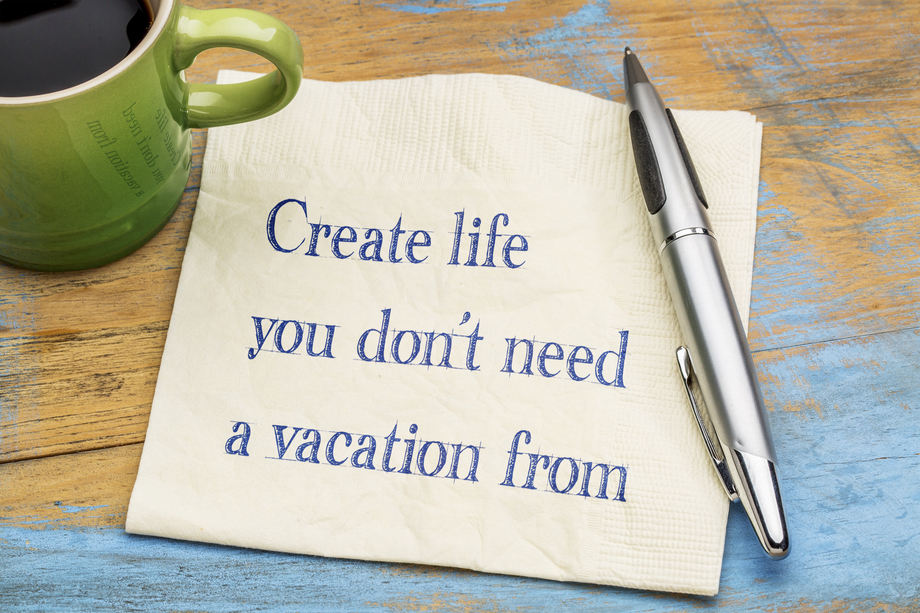Finding Your Passion in Life

“Finding your passion in life” sounds like a slogan from a TV ad for new cars! Yet the phrase actually points us in important and life-giving directions.

Yet, we have to be careful about what we mean by “finding your passion in life”. If we think that “our passion” is out there, lurking behind some bush or cloud, waiting to strike us like a bolt of lightening, we’re probably waiting for something that is never going to occur. Researchers like Professors Paul O’Keefe of Yale and Carol Dweck and Greg Walton of Stanford have shown that “passions are not found full-formed… It’s through a process of investment and development that you develop an abiding passion…”
So, we find our passions in life by investing in them and developing them, and that’s a process to which we have to be open. Does that mean that our “passion in life’ can be absolutely anything, if we just work at it? Is that what we mean by “finding our passion in life”?

We have to be careful, here. Someone I know has what must be one of the largest collections of buttons taken from various clothing items that is owned by a private individual anywhere. I find it very inspiring and commendable that she has followed her interest in this way, and that she has learnt and experienced everything that there is to know about buttons in this wonderful way. I find it interesting to talk to her about buttons; she has some wonderful and surprising anecdotes about their history. But do I think that, even if I worked at it for years and years, the subject of buttons could become my passion in life? No, I don’t!
The Call of Life
In a way that was unusual for a psychologist of his time and place, Jung in his writings very often emphasizes the idea of vocation, or call. He acknowledges that this can be a religious idea, that God calls us to do or be something, but he also emphasizes that there is another way of looking at it, in terms of what he would refer to as “the call of life” or “the law of our own being.” His idea is that each of us has our own true nature or identity, and that life has put us here to express or live that out, and that, in a sense, life “calls” us to this identity, and this living out of who we truly are.
Meaning
Jung didn’t think of “the law of our own being” as something that was going to strike a person like a thunder bolt, zapping you from being directionless to finding your passion in life in an instant. He saw it as a process, which involves uncovering things that have meaning for us over a long period—in many ways, as something that evolves over the whole course of our lives. While it might be a source of anxiety for some, Jung knew that this search for meaning, for what has true value, can genuinely be a long journey. We move into a deeper sense of value and fulfillment, as we do the work of learning more and more about ourselves, and who we really are. As we explore and live our lives, with all of their challenges and surprising turns, we are embarked on the road to finding our passion in life. The ability to find meaning and value in the whole fabric of a lived life—your or my particular unique life—is what Jung referred to as individuation.
Wholeness
This process of bringing together all the various strands and bits in my life, to gain a sense of what really motivates me and what really holds value in my life is what Jungian /a-midlife-transitions often refer to as the journey towards wholeness. Rather than being struck by a lightening bolt, it involves a gradual bringing together of the different elements in our lives—experiences, interests and values. Some of these may seem almost contradictory, but they are all parts of us. Here are some questions that can help in this process:
- What do I love to do?
- What are the causes that really matter to me, to which I would devote time, treasure or talent?
- What do I feel is wrong with the world, that I would love to see made better?
- Who are the people I really connect with? And, just as important, who are the people I really don’t connect with?
- What are the parts of me that I have yet to explore?
Often, a supportive /a-midlife-transition can help a great deal in exploring and finding your true passion in life. The process of journeying toward what really matters in life can be greatly aided by a therapeutic space in which a person can examine the whole of their lives.
With every good wish for the journey,
